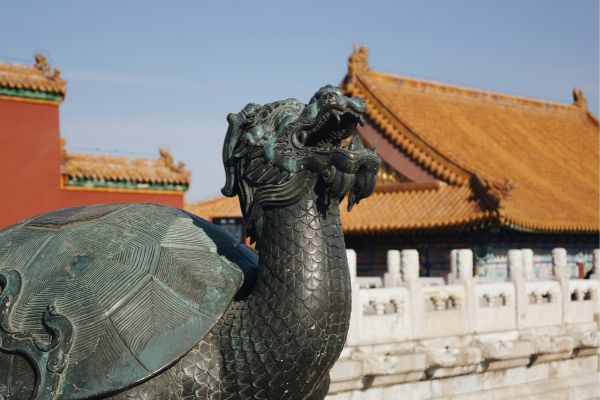
On 20 June 2017, a local court in Chenzhou, Hunan Province, China, ruled against recognition of a French judgment on the ground that the applicant failed to submit a return receipt of the said judgment, and that the Court finds no record showing that China’s Ministry of Justice (“MOJ”) and the Supreme People's Court ("SPC") has ever served the judgment to the respondent in China.
I. Overview
On 20 June 2017, the Chenzhou Intermediate People's Court ("Chenzhou Court") rendered a civil ruling “[2016] Xiang 10 Xie Wai Ren No.1” ([2016]湘10协外认1号), refusing to recognize the No. RG2013F00048 commercial judgment rendered by the Commercial Court of Compiègne in France (in French: Tribunal de Commerce de Compiègne) ("French Court").
The Chenzhou court refused to recognize the French judgment in accordance with the Agreement on Judicial Assistance in Civil and Commercial Matters between the Government of the French Republic and the Government of the People's Republic of China (“the Agreement”, in French: Accord d’entraide Judiciaire en Matière Civile et Commerciale entre le Gouvernement de la République Française et le Gouvernement de la République Populaire de Chine du 4 Mai 1987 ). The agreement entered into force on 8 February 1988 and is the first treaty on judicial assistance in civil and commercial matters signed between China and foreign countries.
Article 21 of the Agreement stipulates that “The party seeking recognition or enforcement of a decision under this chapter shall submit the following documents:
1. A copy of the decision. If it does not state in explicit terms that the decision has become legally enforceable, it must be accompanied by an official document issued by the court attesting that the decision has become legally enforceable;
2. The original certificate of service or any other document as a proof that the decision has been served. If the decision is rendered by default, a copy of the summon stating that the defaulting party has been legally required to appear in court must be filed.
3. Certified translations of the documents mentioned in the preceding two paragraphs.
II. Case Summary
In March 2012, the French court received a case on a sales contract dispute between LaSARLK.C.C and Chenzhou Hualu Digital Technology Co., Ltd. (“Hualu Tech”). The French court served the related legal documents and subpoenas to the MOJ three times, involving, among others, a judicial appraisal conference and a court hearing.
On 23 April 2013, the French court rendered a judgment, ruling that Hualu Tech should compensate LaSARLK.C.C for a total of 383,281.04 euros.
In March 2016, the Chenzhou court received the application filed by the applicant LaSARLK.C.C to recognize the French judgment and the related respondent was Hualu Tech.
The Chenzhou court held that the applicant failed to submit any evidence to establish that the judgment had been served to the respondent. According to the applicant's application, the Chenzhou court requested for an investigation by the MOJ and the SPC’s on the process of service. Consequently, the SPC judge in charge of service process indicated, after inquiry, that after April 2013, the SPC has no further record of receipt and service of legal documents for this case. In other words, the SPC has no record of receipt and service of the French judgment. The Chenzhou court subsequently concluded that there was no evidence that the French judgment had been served on the respondent. The respondent did not receive the judgment document, which deprived him of the right to appeal, and it is not in line with the PRC Civil Procedure Law (CPL) on the principle of equal procedural rights (Article 8 of CPL provides that "all parties to a civil action shall have equal procedural rights."). Therefore, the Chenzhou court refused to recognize the French court judgment on the ground in violation of basic principles of Chinese law, and ordered the applicant LaSARLK.CC to pay application fees of RMB 80.
III. Commentary
When Chinese courts hear cases about recognition and enforcement of foreign judgments, the service is the key point of their review.
1. Service Method
If the judgment is made by the country which has entered a bilateral treaty on judicial assistance with China, the service method must be in accordance with such treaty.
If the judgment is made by the country which is a contracting state of Hague Convention on the Service Abroad of Judicial and Extrajudicial Documents in Civil or Commercial Matters (“the Convention”) as China, the service method needs to meet the requirements of the Convention. It is noteworthy that China has made several reservations when it acceded to the Convention. In short, the MOJ is designated as the only central authority that can accept documents served through diplomatic channels by foreign countries. In addition, the contracting states should provide a consular channel to the MOJ to transfer the instruments, and China has made reservations to service in China through the three (3) methods under Article 10 of the Convention, that is, service by post, or service through officers, or service through other interested parties are not allowed in China.
2. Reasonable Period for Service of Legal Documents
In this case, the Chenzhou court indicated that although the judgment was not served on the respondent, the French court has served the legal documents three times and notified the respondent to appear in court. However, the time for the respondent to sign and accept the legal documents was later than the time as notified in the legal documents. Therefore, in an objective way, Hualu Tech could not attend the trials as notified in the served documents. For example, the first service document stated that the judicial appraisal conference will be held on 27 July 2012, but Hualu Tech signed on 10 October 2012. In fact, the French court issued the instrument no earlier than March 2012 (the time when the French court received the case). In other words, the time left by the French court for the respondent is only four months, which is usually not enough to serve legal documents abroad.
Hualu Tech also stated in its defense that the schedule arranged by the French court was unreasonable, resulting in the incapability of the MOJ to serve the documents in time, and the respondent was unable to participate in relevant activities in time and did not have enough time to prepare for the defense. Hualu Tech believes that this is inconsistent with the rationale behind Article 15 of the Convention.
The Chenzhou court did not respond to Hualu Tech’s defense in the judgment. This may be because that it was sufficient for the Chenzhou court to refuse to recognize the French judgment on the ground that the judgment was not served. However, in other cases, it is likely that Chinese courts will carefully review similar situations in the future.
It is worth noting that on 1 January 2016, the SPC began to operate an international information management platform on judicial assistance for better coordination among various courts across the country, which can greatly speed up the international service of foreign legal documents in China.
Contributors: Guodong Du 杜国栋 , Meng Yu 余萌









